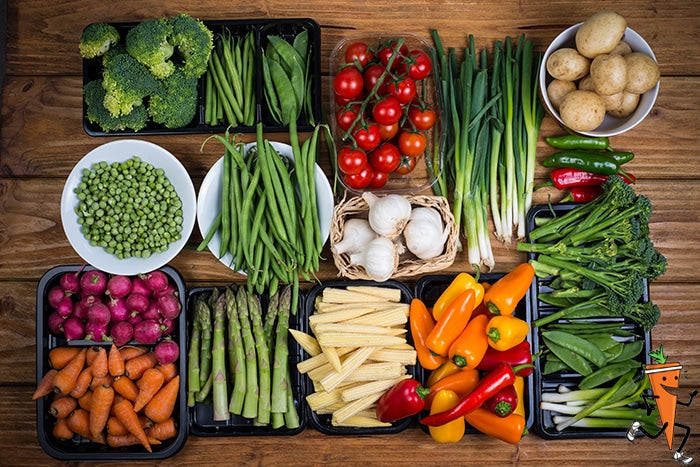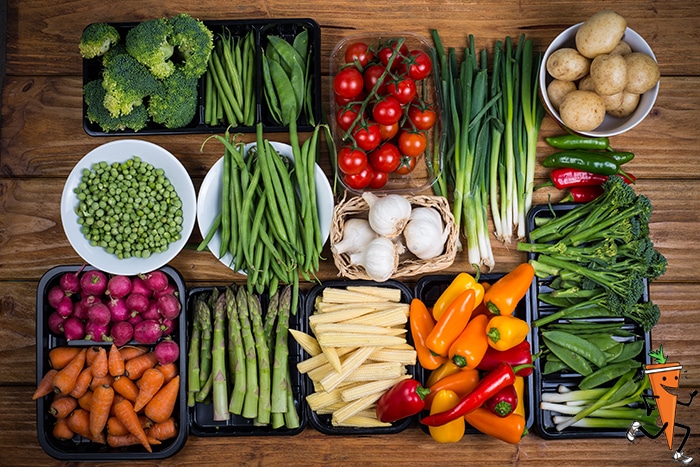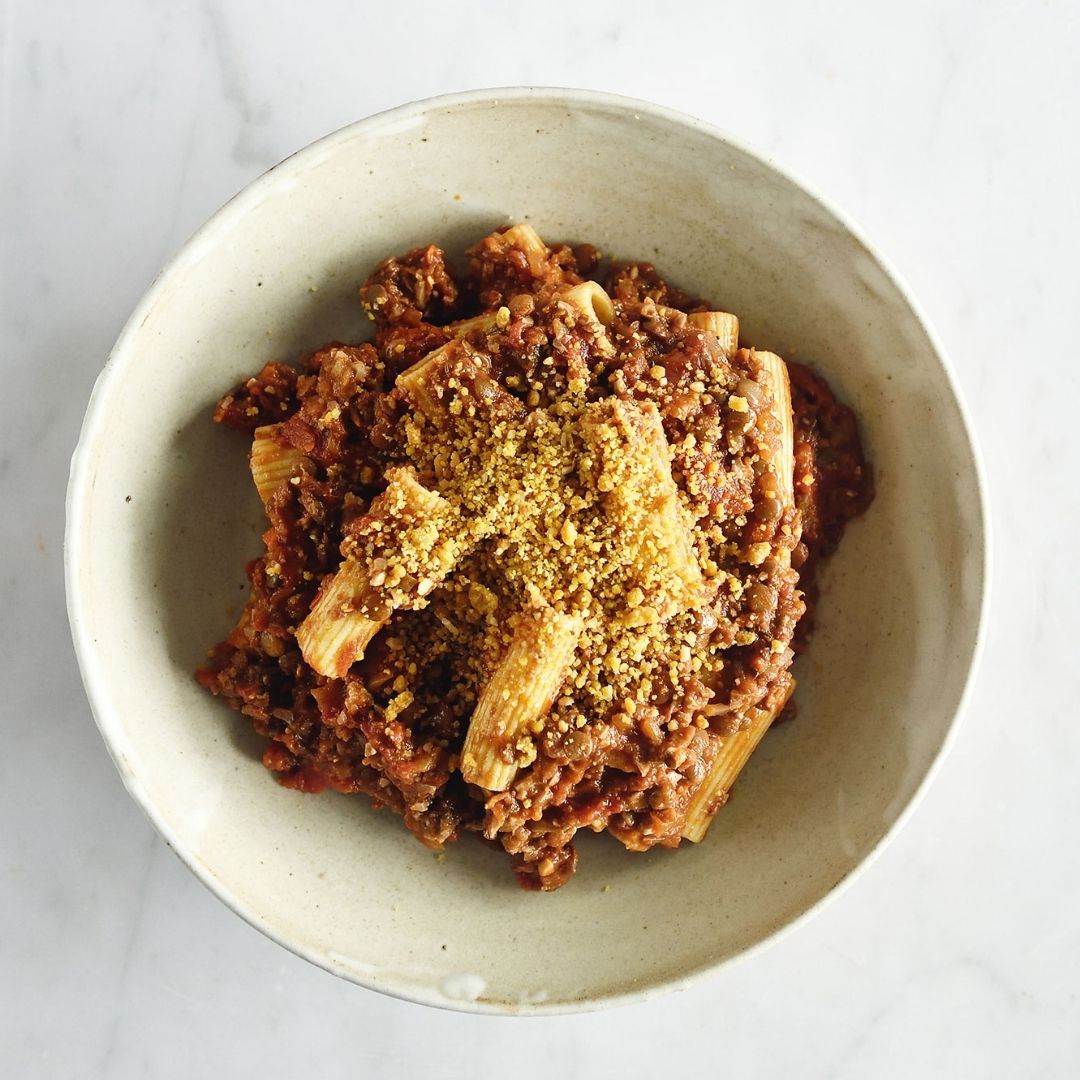
9 Must Knows for a Plant-Based Diet
Share
Alex again here to tell you about some of the things to know before starting a plant-based diet.

So you've heard that eating a plant based diet is a good thing and you'd like to give it a try as a positive lifestyle change (We're being fans of eating plants at FABA and we support anyone eating more of them).
Making changes to any habit can be hard and for any of us it's really easy to slip into old habits. It's likely that you might have tried a new diet in the past and failed, feeling like you'll never have the willpower to make lasting changes.
The not-so-secret secret to starting to make a change with your diet is this:
Changing and maintaining your diet isn't about willpower, it is about taking the right approach
We don't have all the answers here at FABA but we do want to help more people shift onto eating more plants and here is our list of 9 tips to help you start shifting your diet.
1. Know your personal "Why"
Some reasons for eating more plant-based can include:
- Being healthier
- Losing weight (a lot of plant-based foods are lower in calorie density)
- Concern for animal welfare
- Reducing environmental impact
All are great reasons for change but if you are making a habitual change to your diet, understanding why you are doing something will keep you motivated to stick with the change and orient some of your eating choices.
2. Start with small steps on your journey eating a plant-based diet
So you've made a decision to go plant-based. Awesome. You now need to chuck out every animal-based product in your home right?
No.
It's great to have a big goal but you don't need to feel pressured to get there right away, it is a journey and is going to take some work. Find whatever works for you to get you started. For some that can be changing to oat milk, others it can be substituting Impossible meat. The more gradual the process, the more likely you are to succeed in the long term. A Faba Meal is a great place to start!
3. Eat simply but aim for variety
When starting a plant-based diet, it's easy to get caught up thinking about all the minutiae of micronutrient intake. Whilst that can be fun, it can also distract from the aim to make a long term diet change.
Think whole foods
If you eat whole plant based foods you can meet all your nutritional needs. Just keep it simple with fruits, veggies, whole grains, legumes, nuts and seeds.
Adapt your favourites
You don't need to throw out all your old favourite meals, just a little tweaking and traditional recipes can be adapted to plant-based alternatives.
Beans and lentils make great meat substitutes and there are some fantastic plant-based milk options. In our own Rigatoni Bolognese we replace meat with lentils, mushrooms and walnuts.
Alternative proteins are a great starting point and make things easy, but we like the simple nutrition of whole plants (as they are more beneficial in the long term).
4. A Plant-Based Diet without a plan can be low in Vitamin B12
Okay so here is one thing that does need to be stated is that a plant-based diet without any supplements or fortified food is deficient in Vitamin B12 .
Vitamin B12 is an essential vitamin that your body needs but cannot produce, it helps support the normal function of your nerve cells and is needed for red blood cell formation. It is typically found in meat and other animal products but is harder to obtain with plants alone. If you are an omnivorous eater, you can get all the B12 you need from consumption of meat at least once or twice a week but with a fully Vegan diet, you will have to plan ahead.
Fortified milks and nutritional yeast are a great way to supplement!
5. A plant-based diet may require you to eat more Iron
Iron is another key mineral for maintenance and development of our bodies. The mineral is key for maintaining our red blood cells and transporting oxygen around our bodies. When it comes to Iron, you need to pay attention to how much you are consuming (especially for women!) as like Vitamin B12 it is another nutrient that is found in lower quantities in a plant based diet.
You can get there by consuming foods that contain larger quantities of iron, some of the best sources include:
Legumes: lentils, soybeans, tofu, tempeh
Grains: quinoa, brown rice
Nuts and Seeds: sunflower seeds, cashews, pumpkin
Vegetables, Tomatoes, kale
6. Protein consumption requires a little bit of thought in a plant-based diet
I wrote an article on this a while back (here if you would like a read) but the short version of it is this:
- Plant-based dieting can be lower in protein than a meat based one
- Not a problem for the majority of people
- Eat a little of protein in every meal
- Variety is key
7. A Plant-Based Diet is cheaper than eating meat
YES! Inflation is rising and if you would like to save a little bit of money, eat more plants!
If you avoid processed items such as alternative proteins, the majority of what you will eat will be nuts, legumes, grains, and vegetables and the beauty of these is that they are all quite inexpensive.
Now you can purchase some very expensive vegetables but that is not necessary! Most of the ingredients that we talk about in this article are commonly available and easy on your wallet.
8. You don't need to eat Organic to eat a Plant-Based Diet
Whether you buy organic plants is completely up to you. There are arguments for and against whether organic produce has higher nutritional value and how you feel about the use of pesticides is worthy of a longer discussion about how our supply chains function.
Organic food will certainly be more expensive and if you are just getting started on a plant-based diet, you may want to invest a slighter smaller amount. At any rate, we recommend getting well acquainted with the fresh produce and bulk section of your local grocery store and finding what you like.
9. The King of Vegan meals: A grain, a green, and a bean
There are many many many Vegan recipes that you can find online for basically anything but if you are not blessed with a huge amount of culinary experience, get acquainted with the meal of one from each variety:
- A grain: a whole grain starchy carbohydrate such as brown rice or wholewheat pasta
- A green: a fibrous nutrient rich green such as kale or spinach
- A bean: a protein rich legume such as lentils, chickpeas or soy beans
How you flavour each of these components is completely up to you but using this template as a base you will have a satisfying and nutritionally complete meal that is easy to make.
Getting started on a plant-based diet is a really positive first step in improving your health and helping the environment but the best thing you can do is by making a change that you can stick with no matter how small. Habits can be hard to change and the one that you can maintain is the best change be that just switching your milk choice or committing fully to replacing all animal items in your diet.
If you want to make a change, Faba can help you get there with our range of convenient meals. You can get started with our bundle or jump into our fan favourites such as our Rigatoni Bolognese or Tofu Tikka Masala




